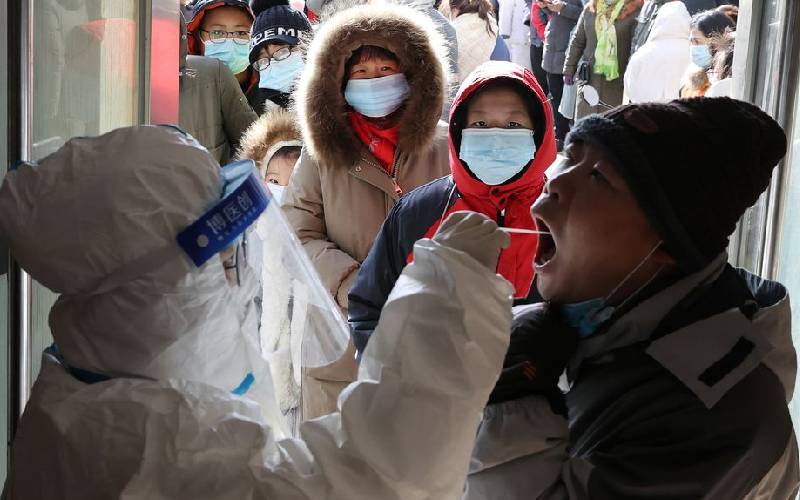×
The Standard e-Paper
Kenya’s Boldest Voice

A medical worker in protective suit collects a swab during a mass nucleic acid testing in Shijiazhuang, China. January 6, 2021. [Reuters]
Scientists have warned Kenyans against relaxing on Covid-19 containment measures as China imposes a lockdown following a surge in infections. It has not been established whether the rising infection if linked to a new strain that is more transmissible than omicron.